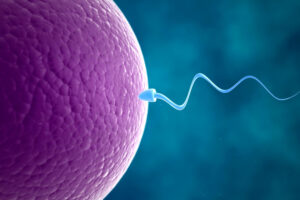For a couple, transitioning from “Partners to Parents” is marked by the anticipation of nurturing a new life within. However, for most couples, this path is sometimes clouded by fertility challenges, despite their persistent efforts to conceive. And, one such complication they might come across is Repeated Implantation Failure (RIF). In this blog, we’ll discuss more about repeated implantation challenges, their causes, and the best treatments.
What is Repeated Implantation Failure?
Repeated Implantation Failure (RIF) is a condition encountered during fertility treatments, particularly in vitro fertilization (IVF), where embryos fail to implant into the uterine lining after multiple attempts.
Implantation is a crucial step in the pregnancy process, where the embryo attaches to the uterus to begin development. RIF is diagnosed after several IVF cycles resulting in unsuccessful implantation, despite the transfer of seemingly healthy embryos. This condition can be especially frustrating and emotional for couples, as it involves repeated setbacks and uncertainties in their journey to parenthood.
What Are the Causes of Recurrent Implantation Failure (RIF)?
Biologically, there can be certain factors that lead to RIF, but in today’s modern world, there are some lifestyle and genetic factors that can have detrimental effects on Implantation and Fertility.
- The Hormonal effect – Imbalances in hormones such as progesterone and estrogen, that regulate the development and function of the uterus, which are vital for implantation, can affect the receptiveness of the uterine lining.
- The embryo factor- Certain issues like Genetic abnormalities, Challenges in development, or the quality of the embryo can lead to an unsuccessful implantation and also a scarred endometrium can hinder the embryo’s ability to implant.
- Genetics- The fetus’s parent genes or chromosomal abnormalities can come under the causes for an Implantation failure.
- Lifestyle- Various lifestyle choices such as stress, smoking, excessive alcohol consumption, and obesity can negatively impact implantation and fertility.
- Antiphospholipid syndrome- It is a disorder where the immune system mistakenly attacks certain fats in the blood, leading to blood clots and complications in pregnancy, which affects the placenta’s ability to impart essential nutrients to the growing baby.
- Uterine Factors: Structural issues within the uterus, such as fibroids, polyps, or a thin endometrial lining, can hinder implantation.
What Are the Symptoms of Recurrent Implantation Failure (RIF)?
The symptoms of RIF can be subtle and are often identified through the outcomes of fertility treatments rather than physical symptoms. Key signs include:
- Multiple Failed IVF Cycles: The major symptom is experiencing multiple IVF cycles without a successful pregnancy, typically defined as a failure after three or more embryo transfers.
- Normal Embryo Development with Failed Implantation: Despite embryos appearing healthy and developing normally, they fail to implant in the uterus repeatedly.
- Unexplained Infertility: Couples often face unexplained infertility where standard tests and evaluations do not reveal clear reasons for the failure to conceive.
- Repeated Negative Pregnancy Tests: After embryo transfer, repeated negative pregnancy tests over several cycles can indicate RIF.
- Absence of Clinical Pregnancy: There is no clinical pregnancy observed, meaning there are no detectable signs of pregnancy such as an ultrasound confirmation of the embryo in the uterus after multiple IVF attempts.
Are there Any Available Treatments for Recurrent Implantation Failure (RIF)?
When assessing the underlying causes of RIF, treatment approaches are dependent upon individual characteristics. Addressing Recurrent Implantation Failure (RIF) necessitates a specialized strategy crafted to suit the specific circumstances of each individual. The following are some strategies for assisting with Recurrent Implantation Failure (RIF):
- Quality of Embryo– Improving embryo quality involves optimizing laboratory conditions and genetic screening techniques to select the healthiest embryos for transfer.
- Endometrial Receptivity Assessment: The ERA, or Endometrial Receptivity Assessment is a technique in fertility treatments, that evaluates the preparedness of the uterus for embryo implantation.
- Balancing your Lifestyle: Keeping a constant check on your stress levels, having a balanced diet, making your physical routine to-the-go, etc, are some of the crucial ways to maintain a balanced lifestyle.
- Assisted Reproductive Techniques: Assisted reproductive techniques or ART are medical procedures that help people conceive when they have difficulty conceiving naturally. These techniques involve using sperm, eggs, or embryos from a couple or donors and can include treatments like in vitro fertilization (IVF) and intrauterine insemination (IUI).
- Preimplantation Genetic Testing (PGT): PGT involves testing embryos for chromosomal abnormalities before they are transferred to the uterus. This ensures that only genetically healthy embryos are selected, increasing the chances of successful implantation.
- Hysteroscopy: Hysteroscopy is a procedure that allows direct visualization of the uterine cavity. It helps identify and correct any structural abnormalities, such as polyps, fibroids, or adhesions, that may hinder implantation.
- Personalized Embryo Transfer (PET): This process tailors the timing of embryo transfer to the individual’s unique cycle to ensure the transfer occurs during the optimal implantation window.
A lot of factors such as our exposure to lifestyle, hormonal issues, or genetic imbalances, can be a few primary causes for Repeated Implantation Failure (RIF), but with advancements in new and emerging medical technologies along with customized treatment procedures, there is a positive way or a boon for couples facing hurdles with IVF or RIF.
If you’re experiencing fertility challenges or conditions like RIF, it is advisable to seek expert assistance from specialized fertility centers like The Boon IVF. The Boon IVF provides extensive infertility solutions under the guidance of leading fertility specialists, so take the first step towards enhancing your fertility by arranging a free consultation with The Boon IVF today.


